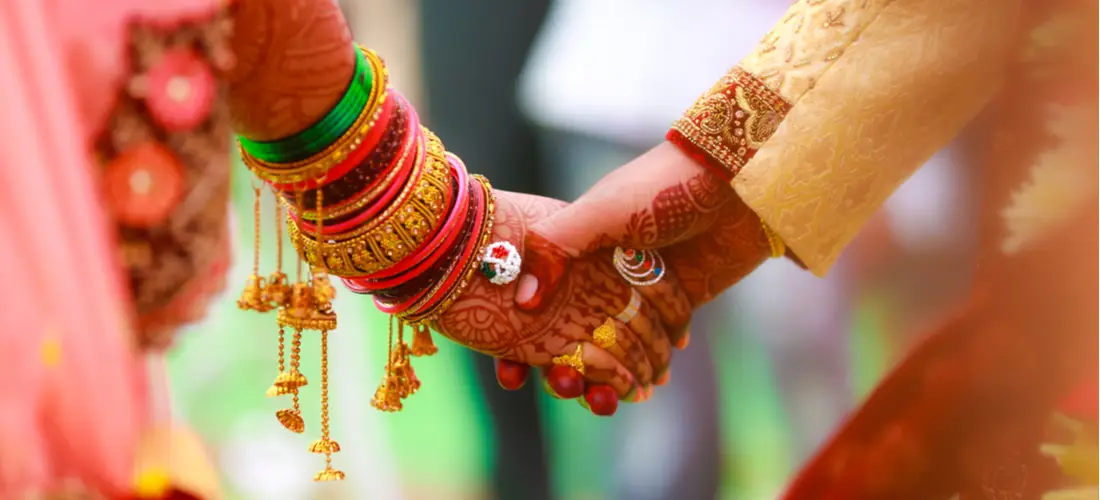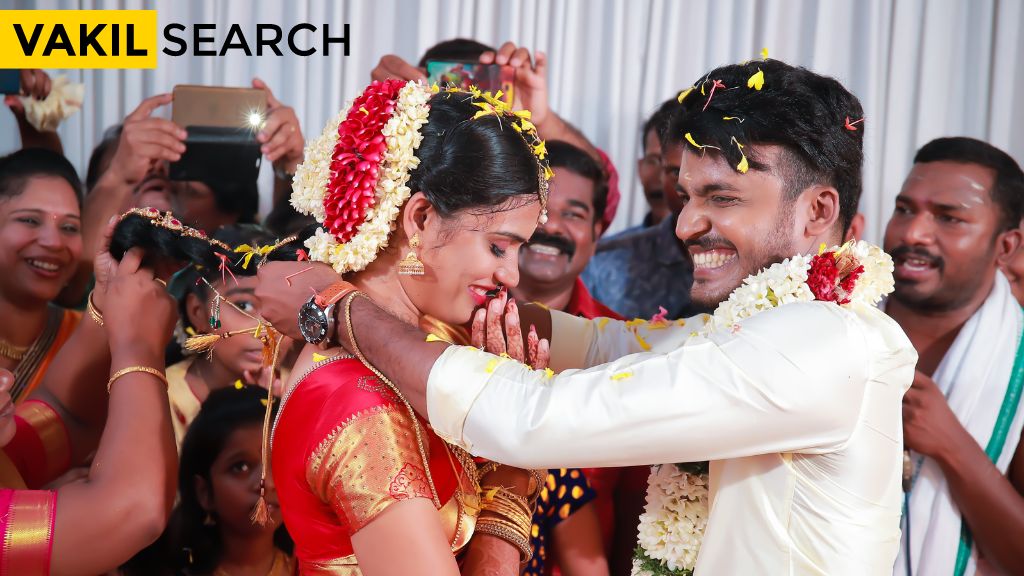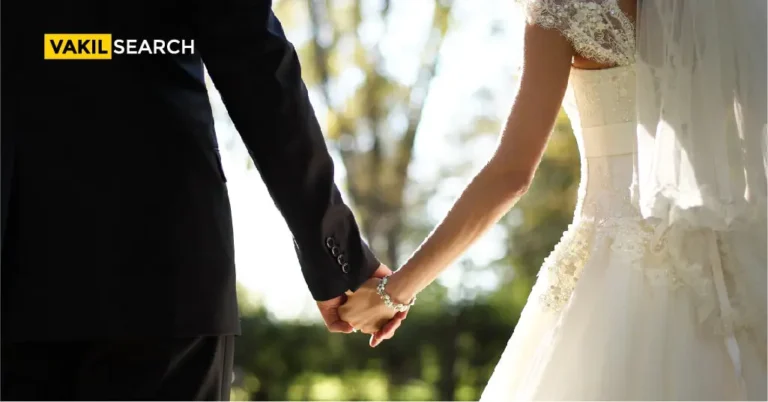In this article, you will learn how to register for a marriage certificate under different marriage acts in India.
A Marriage certificate is a legal document defining an agreement in which two genders or the same genders mutually engage to live together. Legally, both parties must agree to the contract by will if it is to be referred to as marriage. This article provides a brief overview of the subject. First, determine which acts are associated with marriage in India. In India, different marriage acts apply to different religions. Let’s know in detail about the process to register for a Marriage Certificate.
Types of Marriage Act In India
The different types of Marriage Act in India are as follows:
- Hindu Marriage Act of 1955
- Special Marriage Act of 1954
- Marriage and divorce personal laws
Marriage Registration Procedures under Hindu Marriage Act of 1955
The Hindu Marriage Act of 1955 applies to many religions, including Hindus, Jains, Sikhs, and Buddhists. It also applies to individuals who have converted to one of these religions from another. According to this act, the primary condition is the age of the wedding couple. While the bride has been given the age of 18, the bridegroom has been given the age of 21.
This means individuals from any religions mentioned above will not be legally permitted to marry before the ages mentioned. The Hindu Marriage Act applies to all Indian states and union territories, except for Jammu and Kashmir.
The following are the registration requirements under the Hindu Marriage Act of 1955:
- Those willing to apply for marriage certificate can visit any sub-divisional magistrate’s office; the offline application process can be started there, and registration can also be done online. After confirming your district/state, the details are required. In the case of the Hindu Marriage Act, one must wait only 15 days for an appointment, whereas the Special Marriage Act may require up to 30 days
- The registration form must be signed by both the individuals who are of sound mind. Both parties must not be in a forbidden relationship. The Hindu Marriage Act, 1955 includes birth certificates, matriculation certificates, and other documents
- Both parties must provide two passport-sized photographs, one wedding photograph and an invitation card of marriage. If the individuals have converted to any religion covered by the Hindu Marriage Act, 1955, a certificate of conversion verified by a priest to the religion to which the individuals have converted is also required
- The approval of a Gazetted officer is the most significant procedure for completing the registration. A Gazetted officer must verify all of the documents listed above. Following the submission of all the documents mentioned above, it will be the district court’s responsibility to confirm and approve the individuals’ marriage registration.
Do you aware of Facts about Marriage Registration in India
Registration Fee for marriage:
The basic registration cost varies by state, but it is typically between ₹100 and ₹200.
Check Here to More about: https://www.onlinemarriageregistration.com/
Marriage And Registration Procedures Under Special Marriage Act of 1954
The Indian Special Marriage Act is made for those who do not want to marry religiously, i.e. those who prefer non-religious methods such as court marriage.
An Indian and a foreigner’s marriage
The Special Marriage Act also provides guidelines for marriages between Indians and non-Indians (foreigners), with the condition that the marriage takes place in India and not elsewhere. It is also essential that one of the partners reside in India at least temporarily. If one of the partners lives outside of India, the partner who lives in India must complete the Marriage Notice, which can be acquired from any marriage registrar the individual desires.
Then the notice will be sent to the foreign partner, who must fill it out and return it to the registrar. The couple must then wait a month before getting married. This procedure can also be used legally when applying for a visa or dealing with property-related issues.
Documents for registration are needed under the Special Marriage Act, just as they are under the Hindu Marriage Act. The mandatory documents under the special marriage act:
- Passport – A valid passport is required for registration under the Special Marriage Act.
- Certificate of birth
- In the case of divorcees, a copy of the certificate of divorce
- In the case of a widowed partner, the certificate of death of the deceased spouse.
- The certificate mentions a couple’s 30-day stay in India.
Registration Conditions And Requirements for Marriage Certificate When Both Parties Are Hindus
Now consider the procedure that would be followed if both individuals were Hindus:
- Individuals must complete the form and send it to the marriage registrar in one of the districts where either of the individuals has lived for at least a month
- The marriage may be permitted after 30 days except if any of the individual objects
- The marriage must occur only at the designated marriage office
- Both individuals must be physically present at the time when the marriage is happening.
- Three eyewitnesses were present.
Now let’s get to the important stuff. The paperwork required for registration. The following documents are required:
- Passport-sized photos of the individuals, along with the prescribed form and fee.
- Individuals’ proof of residency
- Individuals’ birth certificates
- Eyewitness photos and residential evidence
Registration Conditions And Requirements When Both Parties Are Of Different Religions:
Under the Special Marriage Act, the procedure and documents required for marriage when the parties belong to different religions are nearly identical to those required when both individuals are Hindus. Both individuals must follow the same procedure described above when filing their applications with the marriage registrar’s office. Unless there are exceptional circumstances, the document requirements are the same as stated above . And get information about register for marriage certificate
Individuals Must Pay The Following Fees To Marry Under The Special Marriage Act:
The registrar does not charge any fees. The cost of a registration form varies by state. At the time of registration, individuals must submit the form charges as well as the required documents. In general, it ranges between ₹150 and ₹200.
Conclusion
In this article, we have discussed in detail the legal procedure to register marriage under the different marriage acts in India. Before, registering for a marriage certificate you can check out this article by Vakilsearch for a detailed overview of the same. All the best!
Also, Read:










